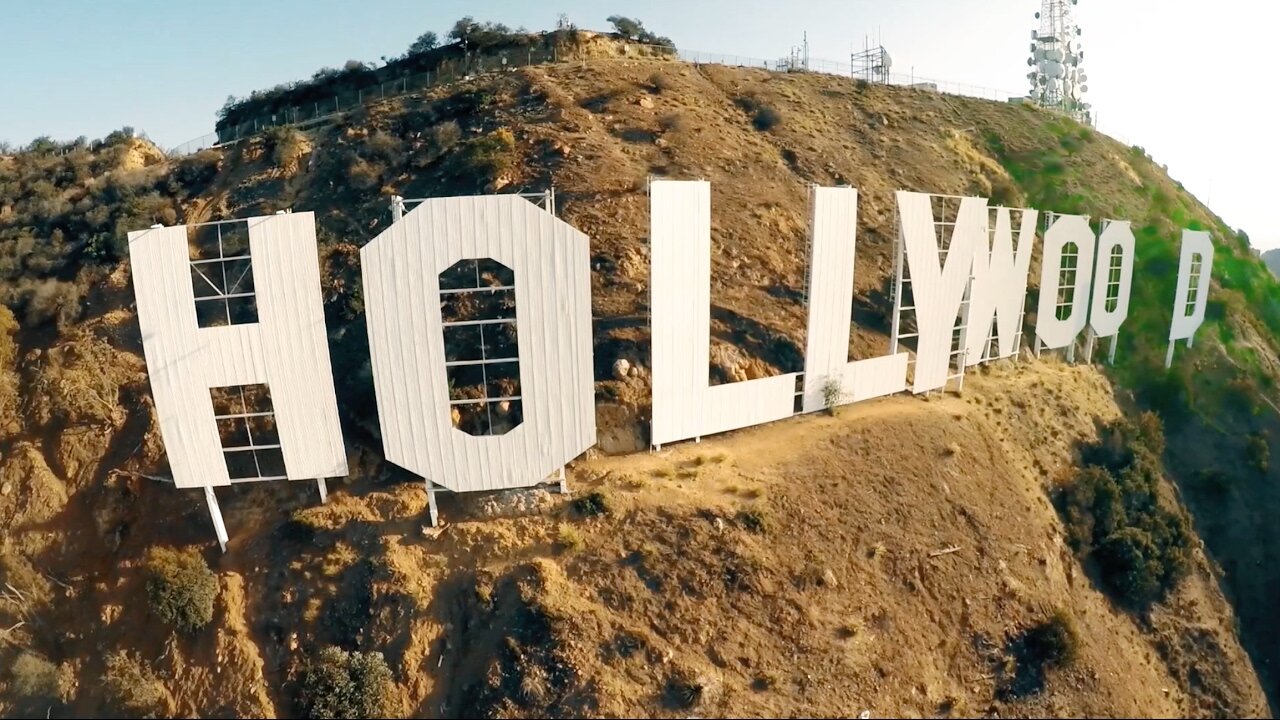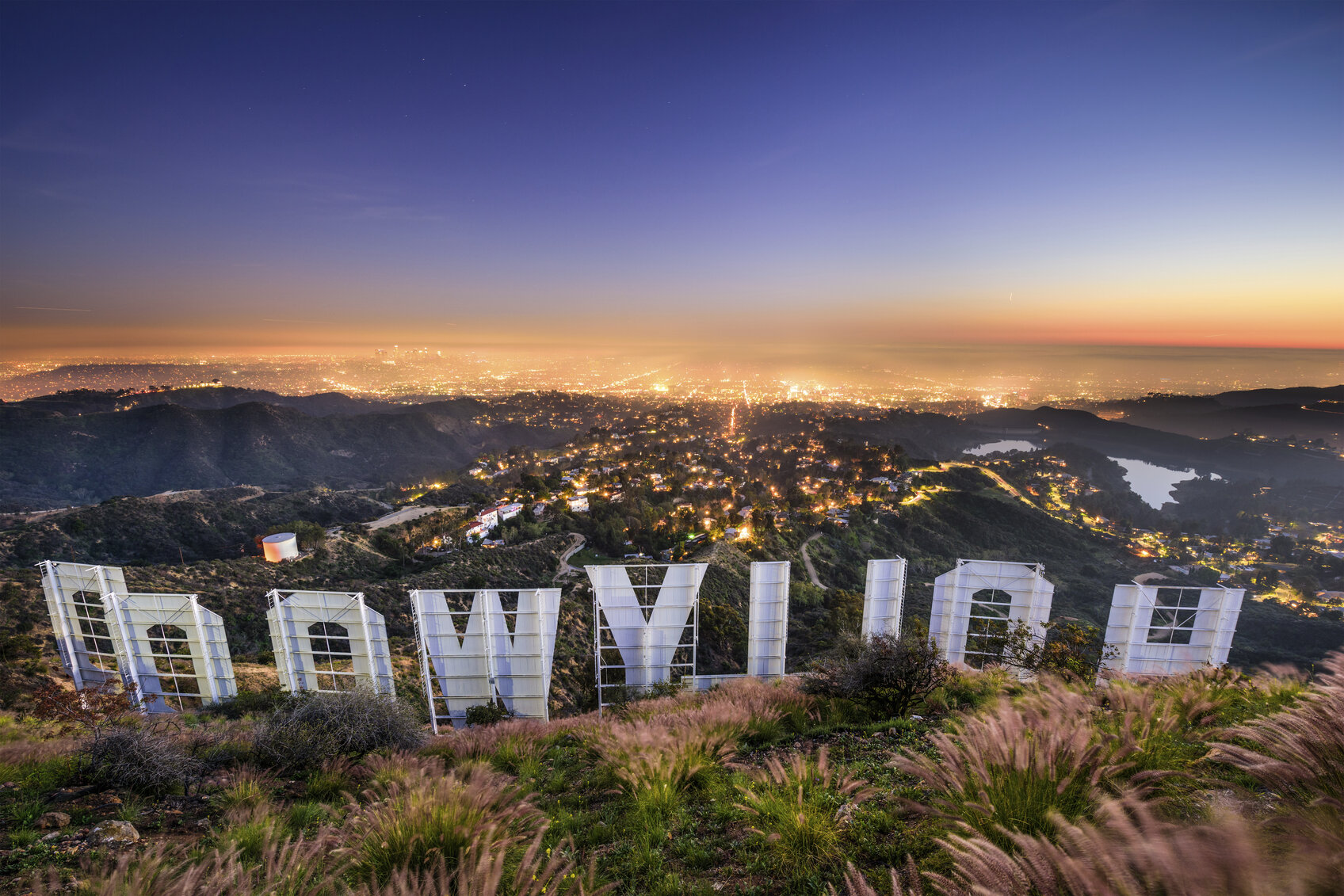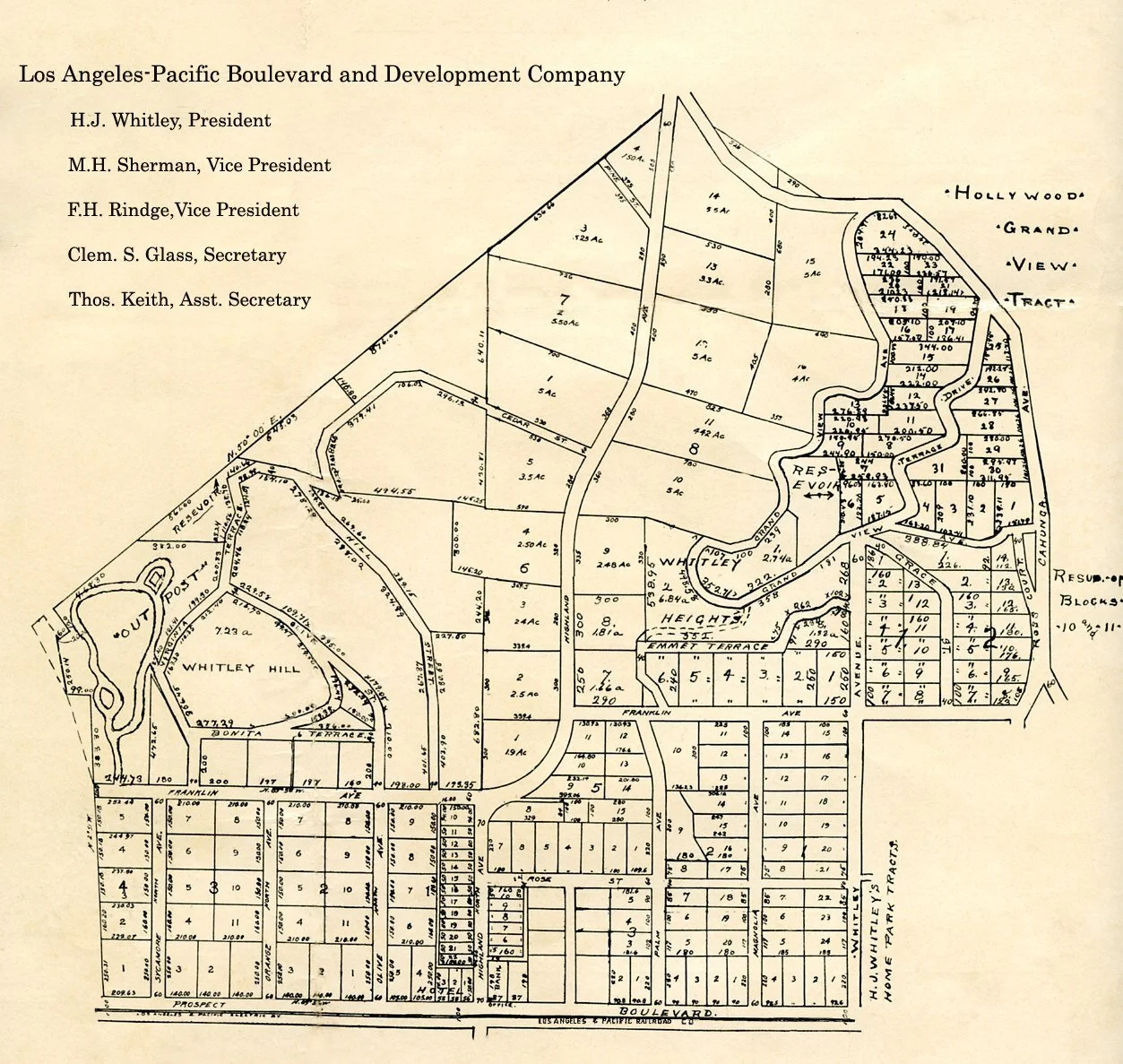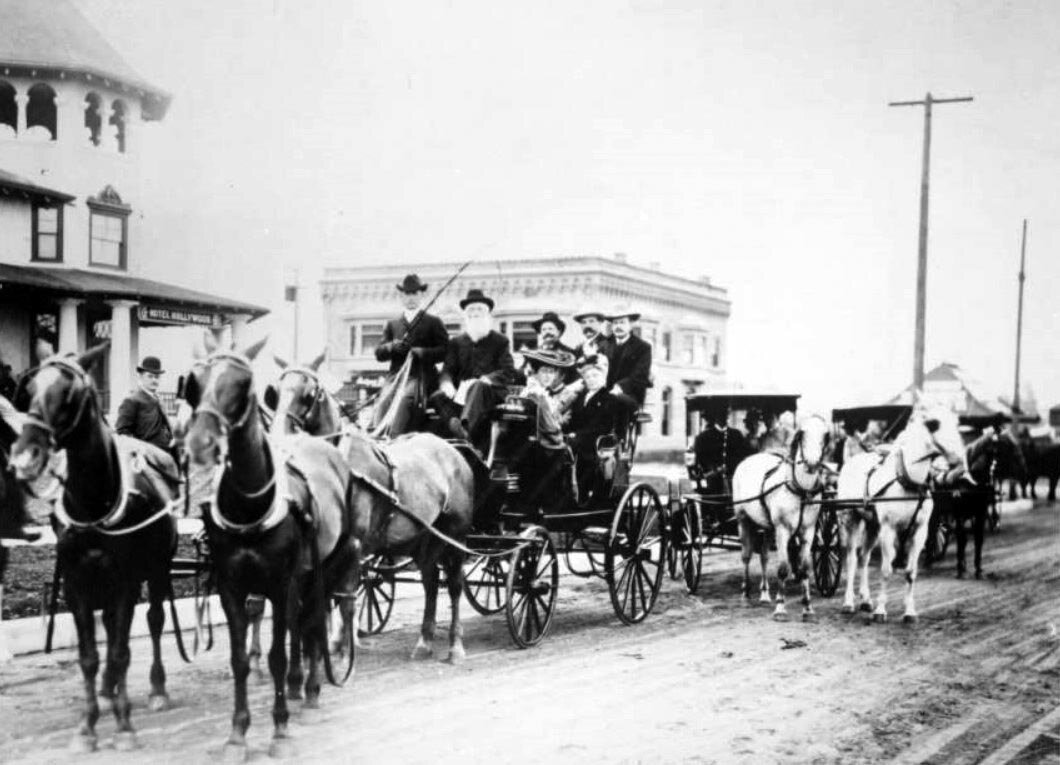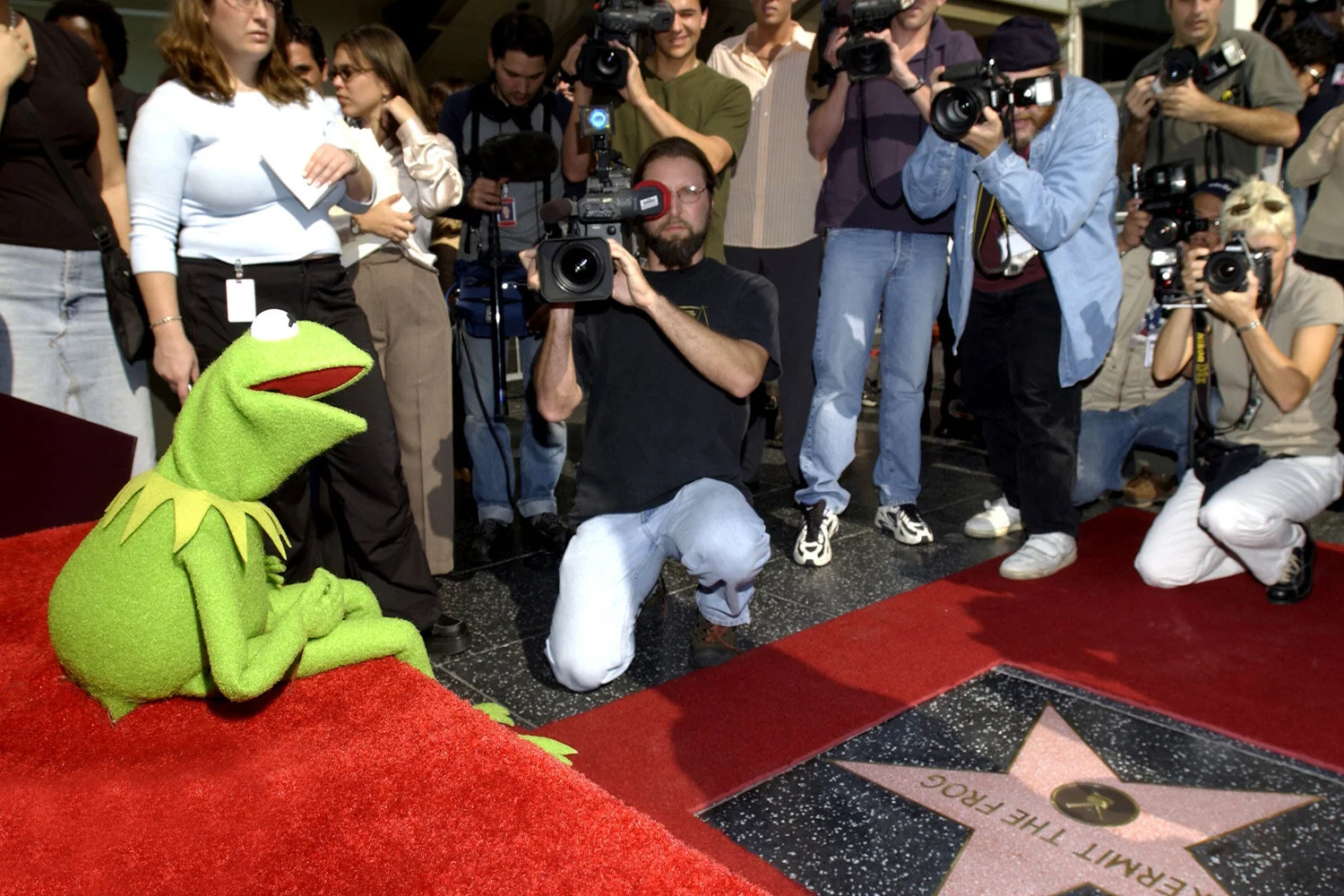Hollywood? There’s always a flipside …
By The Landlord
“Hollywood has always been a cage ... a cage to catch our dreams.” – John Huston
“Hollywood is a place where they'll pay you a thousand dollars for a kiss and fifty cents for your soul. I know, because I turned down the first offer often enough and held out for the fifty cents.” – Marilyn Monroe
“Hollywood is more of an idea than a place.” – Kevin Bacon
“The only “ism” Hollywood believes in is plagiarism." – Dorothy Parker
"If New York is the Big Apple, Hollywood is the Big Nipple.” – Bernardo Bertolucci
"Half the people in Hollywood are dying to be discovered and the other half are afraid they will be.” – Lionel Barrymore
“In Hollywood, brides keep the bouquet and throw away the groom.” – Groucho Marx
"Hollywood grew to be the most flourishing factory of popular mythology since the Greeks." – Alistair Cooke
“Hollywood is an extraordinary kind of temporary place." – John Schlesinger
“Hollywood. It's a mining town in lotus land.” – F. Scott Fitzgerald
It’s the most famous town in the world. A place of fame and fakery, finery, finesse, filth and flipsides, the original home of the film industry, inspiration for many songs, and of course movies themselves, about its people, their hopes, dreams, triumphs, failures, feuds and fantasies. So this week’s theme is primarily about the place, and the experience of being there, and meeting or being the people within it. The film industry of course is related, but the location, its fascias, studios, its streets such as Sunset Blvd and Santa Monica Blvd, landmarks such as Paramount Pictures, the Walk of Fame, the Wax Museum, the Capital Records Building or the Hollywood Bowl, and its society and culture as a focus point.
And a town is all it is really, just a municipality within the city of Los Angeles, created not much more than a century ago in 1903, brought about by one of those hard-nosed Victorian-era pioneers, a Canadian from Toronto as it turned out, H.J. Whitley, a real estate developer with his Los Angeles Pacific Boulevard and Development Company. No wonder then that its history is, in relative time, non-existent, and remains a place all about dreams, somewhere still seeking an identity, looking for attention, and turning those things that frame human ambition, that need to be loved into a mecca, a money factory.
Let’s start at the beginning. This was the original plan of the famous Hollywood Grand View with Highland Avenue:
The original plan
And here’s a view of that original avenue. H.J. Whitley is standing on the left wearing a bowler hat. The building at the left is the Hollywood Hotel on the corner of Highland Ave, and Hollywood Blvd. It’s just like a town you might see in a cowboy movie.
Old Hollywood, with founder H.J. Whitley standing outside the Hollywood Hotel on the left
And only nine years later came the first motion picture studio, Nestor Studios in Hollywood was built by David Horseley for Christie Film Company in 1912. Here cars are lined up at Sunset Boulevard, obviously a street that inspired many songs too, with Gower Street on the right.
Nestor Studios, Hollywood’s first, in 1913
What is at the heart of Hollywood? Perhaps its best defined by that iconic hillside and its row of letters. “The most famous symbol of Hollywood is the literal Hollywood sign, perched on the Hollywood hills. Its history – from advertisement for the subdivision Hollywoodland to icon for the movie industry, from optimistic newness to disrepair to renewal at the hands of the Chamber of Commerce – seems especially appropriate to Hollywood's self-construction … Like the movies themselves, the Hollywood sign is essentially an advertisement for itself,” says Christopher Ames, rather succinctly, in his book – Movies About the Movies: Hollywood Reflected.
But how does the town really operate? Here’s Max Lerner, from America as a Civilization: “To create what it does, Hollywood has to draw young people, often of unstable temperament, from all over the world. It plunges them into exacting work – surrounds them with a sensuous life – and cuts them off from the normal sources of living.”
So how might we set up a way to define Hollywood? Perhaps from the point of view of those hundreds of thousands of young people who have ventured there, and on whom it feeds, who with hopes, dreams and aspirations, arriving in LA looking for auditions and opportunities, and most only surviving by working in bars and restaurants, hoping to randomly serve at the table of famous producer or meet an actor, and get good tips – of all kinds. So this week, our own Song Bar restaurant area has set out lots of tables, and the place is full of celebrities and more eager to talk about the place. Let me tell you, it’s not easy to get a table in here. The musical maître d’ policy is strict! We’ve already heard from a few distinguished guests above, but let’s roam about the tables a bit more, doing a spot of eavesdropping and chatting to see what people have to say about the place.
To be honest, mostly it’s pretty bitchy, but also hit the nail on the head, and at one of our very best tables, here’s Marilyn Monroe who can be overheard remarking: “In Hollywood a girl's virtue is much less important than her hairdo.”
“Yes. Most of the successful people in Hollywood are failures as human beings,” grumbles Marlon Brando.
“Well, Hollywood is a strange place. The class structure here is more rigid than almost anyplace I've ever experienced. It's made more difficult by the fact that it's constantly changing. You never know what class you belong to unless you're one of the two or three people that have been in the same echelon for a long, long time,” reckons Alan Arkin.
“Hollywood is an American, or more accurately an international ‘dream factory’ town, which alternately mixes the promise of quick wealth, gratification of the senses and escape from the mundane with ruthless savaging of individuals, moral decadence and cheap glamour. The social structure is a pyramid whose highly visible and publicised top layers are supported by masses of disappointed, embittered and equally corrupted slave labourers,” says Kimball King, in much stronger terms, and quoting from Hollywood on Stage.
Raymond Chandler hates the place, but in his book The Little Sister, there’s a remark that suggest LA is just a bad and should be grateful for Hollywood: “Real cities have something else, some individual bony structure under the muck. Los Angeles has Hollywood – and hates it. It ought to consider itself damn lucky. Without Hollywood it would be a mail order city. Everything in the catalogue you could get better somewhere else.”
In Wise Children, Angela Carter meanwhile sums up the place in more psychological terms,“…as if Hollywood were the name of the enchanted forest where you loose yourself and find yourself, again; the wood that changes you; the wood where you go mad; the wood where the shadows life longer than you do.”
Certainly the idea of Hollywood is far more in the mind than in reality. But what about that aspect of it?
What is Hollywood reality? Once Upon A Time / La La Land?
All in the mind?
“Where is Hollywood located? Chiefly between the ears. In that part of the American brain lately vacated by God,” reckons Erica Jong.
“Well, in the movies, God is an actor just like everyone else,” chips in Kris Kidd, from Down for Whatever.
“Hollywood is wonderful. Anyone who doesn't like it is either crazy or sober,” says Raymond Chandler with no shortage of irony.
“Sober?” says WC Fields "I've been asked if I ever get the DTs. I don't know. It's hard to tell where Hollywood ends and the DTs begin."
“In Hollywood if you don't have a shrink, people think you're crazy,” reckons Johnny Carson.
And with a nice play on words: “Lord, that Hollywood train, forever coming round the bend!” says James Baldwin in The Devil Finds Work.
But let’s pause for a second and jump into a couple of films about Hollywood, itself that captured the craziness the place. Billy Wilder’s Sunset Boulevard (1950) stars William Holden as Joe Gillis, a struggling screenwriter, and Gloria Swanson as Norma Desmond, a former silent-film star who draws him into her demented fantasy world, where she dreams of making a triumphant return to the screen. It captures Hollywood at the end of its first great era, when the place felt like it was dying, Wilder shows the hills, backlots and homes of the movie business, with cameos from the Cecil B. DeMille, Buster Keaton and Erich Von Stroheim.
A more positive take spanning the eras is the wonderful The Artist (2011), where another silent movie star realises he has to move into the era of the talkies, with of course a star turn by Uggie the dog.
And then there are the dark sides of Hollywood, as shown in The Player, the 1992 satirical black comedy film directed by Robert Altman about a ruthless producer starring Tim Robbins, or a the star-studded L.A. Confidential, based on James Ellroy’s book, from the sleazy, violent police perspective, or David Lynch’s Mulholland Drive, which captures a sense of Hollywood history in its tale of a wannabe actress with a frightening series of flipsides.
But let’s turn back to our restaurant tables, and do a spot more eavesdropping. Fakery seems to be an overarching theme to Hollywood:
Fascias and Fakery
“The place is unreal. The people are unreal. The flowers are unreal – they don't smell. The fruit is unreal. Even the streets and buildings are unreal. I always expected to hear a carpenter shout "Strike" and the whole place come down like a stage set. That's what Hollywood is--a set, a glaring, gaudy, nightmarish set erected in the desert,” says Ethel Barrymore.
“Welcome to Hollywood. Here you can be whatever you want! That's the secret of American success! Fake it till you make it!” says a rather over-enthusiastic Lily Amis, author of America’s Royal Family.
“Yeah! I love Los Angeles. I love Hollywood. They're beautiful. Everybody's plastic, but I love plastic. I want to be plastic!” says Andy Warhol.
Fred Allen is also here. “Hollywood is a place where people from Iowa mistake each other for movie stars. You can take all the sincerity in Hollywood, place it in the navel of a fruit fly and still have room enough for three caraway seeds and a producer’s heart.”
But what does that fakery do for relationships?
Kermit takes his place
Hollywood relationships? Real or Not?
“In Hollywood a marriage is a success if it outlasts milk,” says standup Rita Rudner.
“Understand this: all the sleaze you've heard about Hollywood? All the illiterate scumbags who scuttle down the corridors of power? They are there, all right, and worse than you can imagine,” says William Goldman, in The Devil's Guide to Hollywood.
It’s a cut-throat business. “Hollywood is a place where a man can get stabbed in the back while climbing a ladder,” says William Faulkner.
“Well, sometimes it's good to be the smartest rat in the sewer,” says Michael Houbrick, in The Rat Pack of Hollywood Visits the State Fair.
“It's all a game. And if you don't want to play, maybe you shouldn't come to Hollywood,” says a deeply shallow Sophie Kinsella, author of Shopaholic to the Stars.
"There's not much room for eccentricity in Hollywood, and eccentricity is what's sexy in people,” complains Rachel Weisz.
“True,” says Lana Turner. “But It's said in Hollywood that you should always forgive your enemies - because you never know when you'll have to work with them.”
Paramount Pictures
Writers’ and actors’ despair
Despite the quality of the films already mentioned, Hollywood is also associated with destroying talent and lowering quality.
“I'm a Hollywood writer, so I put on my sports jacket and take off my brain,” quips Ben Hecht.
“In Beverly Hills... they don't throw their garbage away. They make it into television shows,” says Woody Allen.
“Hollywood keeps recycling what worked back then, what worked back when, but nothing new. I believe their breakout hit has been written. Written either by me? Written either by you? Indie writers, authors, and creatives can, again, be Hollywood's salvation, but Hollywood must first get a fucking clue,” says A.K. Kuykendall.
“I think Hollywood is in love with sequels. If it's successful once, just jazz it up and shoot it out there again. I think it's unfortunate,” says a more understated Paul Newman.
But is Hollywood full of zombies seeking money? "If I fail, the film industry writes me off as another statistic. If I succeed, they pay me a million bucks to fly out to Hollywood and fart,” says George A. Romero.
“I believe that God felt sorry for actors so he created Hollywood to give them a place in the sun and a swimming pool. The price they had to pay was to surrender their talent,” says Sir Cedric Hardwicke, author of A Victorian in Orbit.
And in Thomas Pynchon’s The Crying of Lot 49, there’s a clever description of how actors are chosen: “the casting had been typically Hollywood: they didn't look or act a bit alike.”
So who wants to be a star in this place? Not this man. "I don't want to be in Terminator. I don't want to go to Hollywood." – Eric Cantona
But there are also some great films about writer’s stuck in the Hollywood system. The Coen Brother’s Barton Fink is a brilliant satire about a New York playwright who falls into the trap.
‘Dear’ Hollywood – the sheer cost of things
“We Americans have always considered Hollywood, at best, a sinkhole of depraved venality. And, of course, it is. It is not a Protective Monastery of Aesthetic Truth. It is a place where everything is incredibly expensive,” says David Mamet.
“Hollywood, where the rich don't have to pay for anything.” – Caroline Kepnes, Hidden Bodies
Hollywood money isn't money. It's congealed snow, melts in your hand, and there you are.” – Dorothy Parker
Walk of life: the dream, the nightmare, and the apocalypse
Hollywood seems to capture very worst and best of humanity. The huge amount of talent and creativity, but also the sleaze and the exploitation. And behind the scenes, well then, mostly the the latter and so the worst. The Walk of Fame is studded with film stars’ names, but there are many others there, more than 2,600 in all. And in this era of #MeToo, of the disgraced producer Harvey Weinstein, people must also make their feelings known. On Bill Cosby’s star, his name as been crossed out and written on as “serial rapist”. And Donald Trump’s (yes, I know), his place there, quite understandably, has been regularly vandalised, so the sleazy underbelly of Hollywood reveals itself, and it isn’t all starry-eyed reverence.
Written in the stars. Donald Trump’s Walk of Fame situation
For more about the real Hollywood, there are two great books, autobiographies in fact, about the cut-and-thrust sleaze of Hollywood are film producer and author Julia Phillips’s You'll Never Eat Lunch in This Town Again, and Me Cheeta, from the point of view ofTarzan’s best friend, ghostwritten of course, but revealing tons of scandalous stuff that can’t be sued because, well, it’s written by a chimp, of course!
So where is it all heading? Let’s head to the final table where there is lively, witty personnel and conversation to match:
“You're now heading toward Hollywood, like any normal tourist. Breathe in that smog and feel lucky that only in L.A. will you glimpse a green sun or a brown moon. Forget the propaganda you've heard about clean air; demand oxygen you can see in all its glorious discoloration,” says John Waters.
“Isn’t Hollywood a dump – in the human sense of the word? A hideous town, pointed up by the insulting gardens of its rich, full of the human spirit at a new low of debasement,” says F. Scott Fitzgerald.
“Yes, it’s an abominable place,” says Terry Gilliam. “If there was an Old Testamental God, he would do his job and wipe the place out. The only bad thing is that some really good restaurants would go up as well.”
And Moss Hart is here to finish things off: “There’s nothing the matter with Hollywood that a good earthquake couldn't cure.”
Then again. I’d still like to visit it one day when my film script is accepted.
This week’s musical Hollywood mogul, and expert director, I’m delighted to say is the perfect philipphilip99! Place your Hollywood songs in comments below, deadline at 11pm UK time on Monday for the musical movie playlist release on Wednesday. Then it’s a wrap. With maybe a salad on the side. Not too much dressing.
New to comment? It is quick and easy. You just need to login to Disqus once. All is explained in About/FAQs ...
Fancy a turn behind the pumps at The Song Bar? Care to choose a playlist from songs nominated and write something about it? Then feel free to contact The Song Bar here, or try the usual email address. Also please follow us social media: Song Bar Twitter, Song Bar Facebook. Song Bar YouTube. Subscribe, follow and share.
Please make any donation to help keep Song Bar running:

